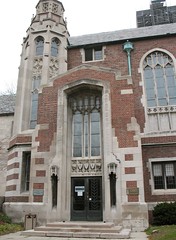FICTION
I discovered some new (to me) authors this year.
Where has Anthony Trollope been all my life? Why didn't anyone tell me? It all started with The Way We Live Now, which I later learned is often considered his best book. Figures I'd start at the top! But I can't say "it was all downhill from there", because it wasn't. I did the Barchester Chronicles (not in order, but that didn't seem to matter a great deal), and a couple of "stand-alones". One of my goals for 2013 is to read the Palliser novels.
Another author new to me this year is Stewart O'Nan, who, unlike Trollope, writes about ordinary, working-class people, and does so beautifully. I had picked up a copy of Last Night at the Lobster at the Association of Writers & Writing Programs conference here back in January. It's set in a fast-food restaurant on its last night in business, which may not sound the most promising setting for a novel, but I was enthralled. Then I found The Odds: a love story, about a couple ready to divorce for financial reasons, and making one last throw of the dice (literally) at a Niagara Falls casino. Really fine work.
Among the best I found were the Irish writer, John McGahern (Amongst Women), Carlo Lucarelli's detective stories, set in Italy at the end of WWII, and Amara Lakhous, an Algerian-born author now resident in Italy (we read his Divorzio all'islamica a viale Marconi in my Italian lit class).
I did not neglect old friends, though. I read more Henry James and Wilkie Collins, as well as Alessandro Baricco's Senza Sangue, James M. Cain's posthumously published The Cocktail Waitress. There were new books by Donna Leon, Andrea Camilleri, and Sandra Cisneros, among others. Of course, the new book that I was most excited about was Hilary Mantel's Bring up the Bodies, the second in her trilogy about Thomas Cromwell. The Man Booker people liked it, too, because she won the prize for this one, just as she did for the first, Wolf Hall. And well-deserved, too, if you ask me.
NON-FICTION
As usual, my non-fiction reading was all over the map, but, also as usual, it was heavy on biographies, memoirs and history. One of my absolute favorites was Robert Rodi's Bitch In a Bonnet: Reclaiming Jane Austen From the Stiffs, the Snobs, the Simps and the Saps, an absolutely delightfully snarky work of lit crit.
Even before the news that Richard III's body may have been found (and if you don't know about that - where've you been? - you can read more at one of my new favorite websites, The History Blog), I read a couple of older books about him, Clements R. Markham's Richard III: His Life & Character Reviewed in the Light of recent research
and Horace Walpole's Historic Doubts on the Life and Reign of Richard III. I anxiously await the results of the DNA testing, but I'm pretty convinced by the circumstantial evidence that they have, indeed, found Richard's body.
I was fascinated by Craig Monson's Nuns Behaving Badly: Tales of Music, Art and Arson in the Convents of Italy. It has a delightfully tabloid cover, too:
 I plan to follow this up with his newest book, Divas in the Convent: Nuns, Music and Defiance in Seventeenth-Century Italy.
I plan to follow this up with his newest book, Divas in the Convent: Nuns, Music and Defiance in Seventeenth-Century Italy. I read Colm Tóibín's All a Novelist Neeeds: Colm Tóibín on Henry James (which was in part what inspired me to pick up more James). His new book, The Testament of Mary, is on my list for 2013. I've just seen that it's going to Broadway (it was originally written as a monologue for theater), so I may need to plan a trip to NYC in the spring!










